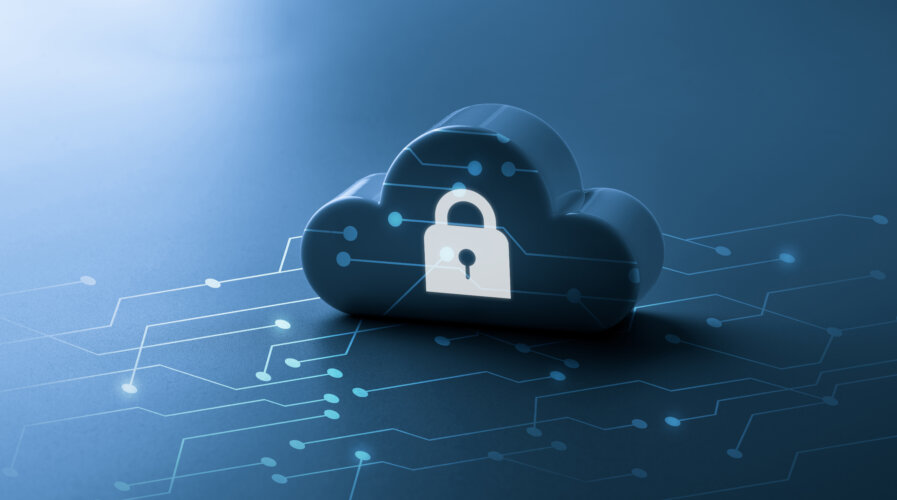
(Source – Shutterstock)
Three factors to consider when picking a cloud security service provider
As businesses increase their adoption of cloud services, whether for building applications, running workloads, or storing data, they need to understand that cloud security is a separate concern. While most cloud service providers emphasize security on the cloud, organizations still need to invest in additional external levels of security for their data and workloads.
In fact, the cloud provider will not always provide its customers with the necessary tools to deal with cyber criminals. Most businesses are not aware of this, which is normally stated in the fine print of the agreement with a cloud service provider.
Cloud service providers only guarantee the availability of their services. If there is downtime due to a problem with the service provider internally, the customer may demand compensation. However, if there is a data breach due to malware or other cyber threats, the cloud provider will not be held responsible.
As such, businesses need to invest in cloud security services. IBM defines cloud security as a collection of procedures and technology designed to address external and internal threats to business security. This is essential as organizations move towards digitalization and incorporate cloud tools and services into their infrastructure.
As cloud environments become increasingly interconnected, it also becomes difficult to maintain a secure perimeter. Not only can the potential attack surface increase, but a compromised business could also end up having data breached both on the cloud and on-premises.
According to the 2022 Cloud Security Report by CheckPoint, 76% of enterprises are now using two or more cloud providers. 35% of organizations have more than 50% of their workloads in the cloud, while 29% anticipate moving this number up to 75% of workloads in the cloud in the next 12-18 months.
The report also showed a significant growth of 48% in the number of attacks per organization experienced in 2022, compared to 2021 on cloud-based networks. When examining the growth in the number of attacks per organization, according to geographical regions, Asia sees the largest increase, with 60% growth, followed by Europe that has seen substantial growth of 50% and North America with 28%.
Picking a cloud security service provider
To ensure data is well secured on the cloud, cloud security providers offer a variety of products and services to businesses. However, picking the right cloud security service provider can also be a challenge. Here are three factors organizations should consider when picking a cloud security provider.
First, organizations need to pick a cloud security provider that not only secures data but can also offer backup and recovery capabilities. When a company is breached, most cybersecurity providers can only provide breach alerts and incident reports. Not all providers are able to offer backup and recovery services.
Organizations need to ensure their backup and disaster recovery capabilities are up to date and can be accessed immediately if they are breached. They need to work with security and backup vendors that offer immutable backup as well as simple and straightforward recovery options. There are also data loss prevention services that offer a set of tools and services designed to ensure the security of regulated cloud data.
Next, organizations need to consider partnering with cloud security providers that offer a shared responsibility when it comes to cybersecurity. This way, the company can add additional security features based on the cloud service provider’s capabilities. At the same time, businesses can also invest in an additional level of security, like identity and access management, privileged access management, or network segmentation.
Lastly, organizations need to get a cloud security provider that offers security information and event management or SIEM. SIEM uses AI-driven technologies to correlate log data across multiple platforms and digital assets. Simply put, organizations can have comprehensive security orchestration that automates threat monitoring, detection, and response in cloud-based environments.
Among the security vendors that provide the services above include IBM, VMware, KnowBe4, CheckPoint, Palo Alto Networks, Acronis, Sophos and many more.
READ MORE
- Data Strategies That Dictate Legacy Overhaul Methods for Established Banks
- Securing Data: A Guide to Navigating Australian Privacy Regulations
- Ethical Threads: Transforming Fashion with Trust and Transparency
- Top 5 Drivers Shaping IT Budgets This Financial Year
- Beyond Connectivity: How Wireless Site Surveys Enhance Tomorrow’s Business Network


